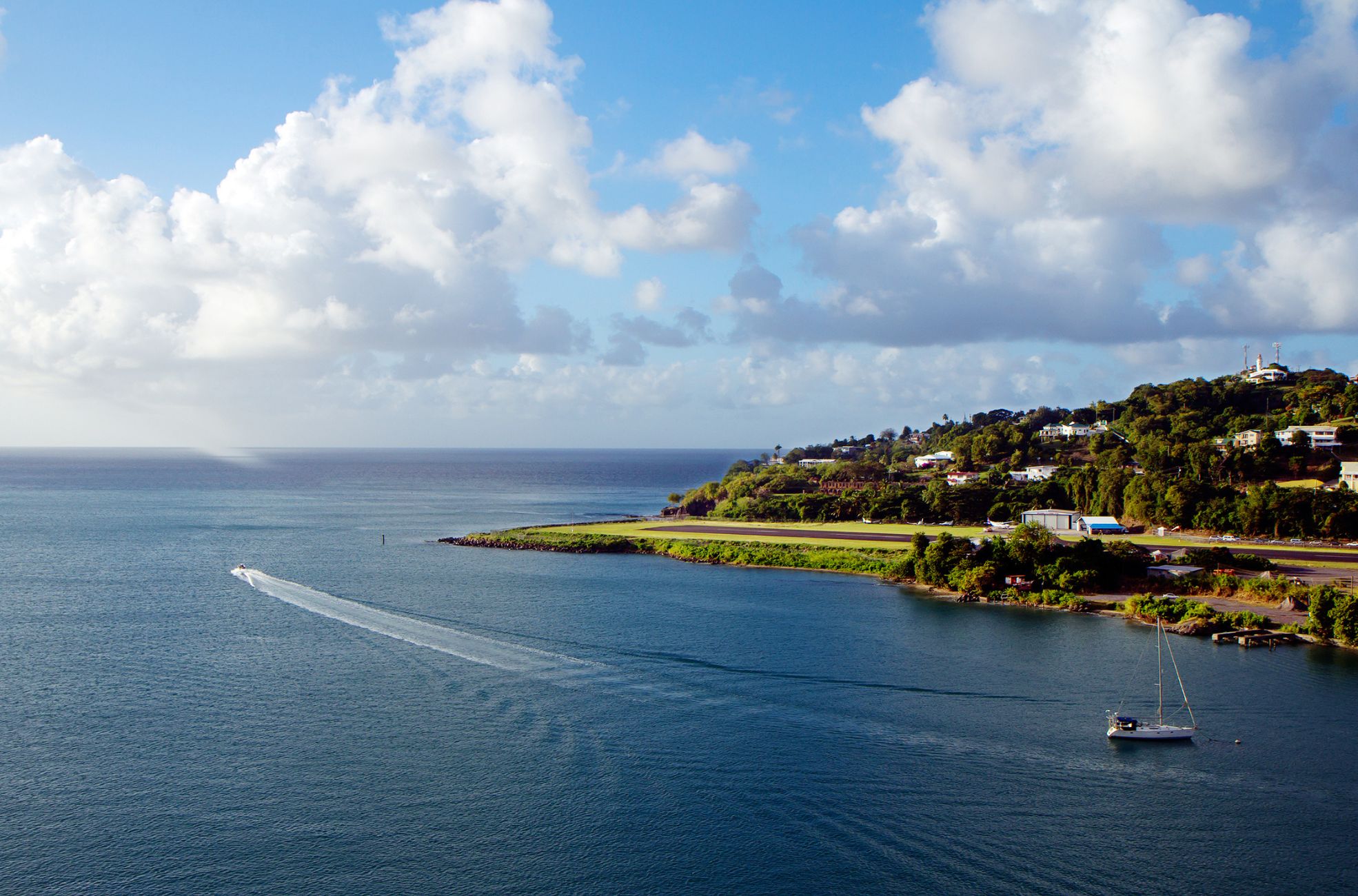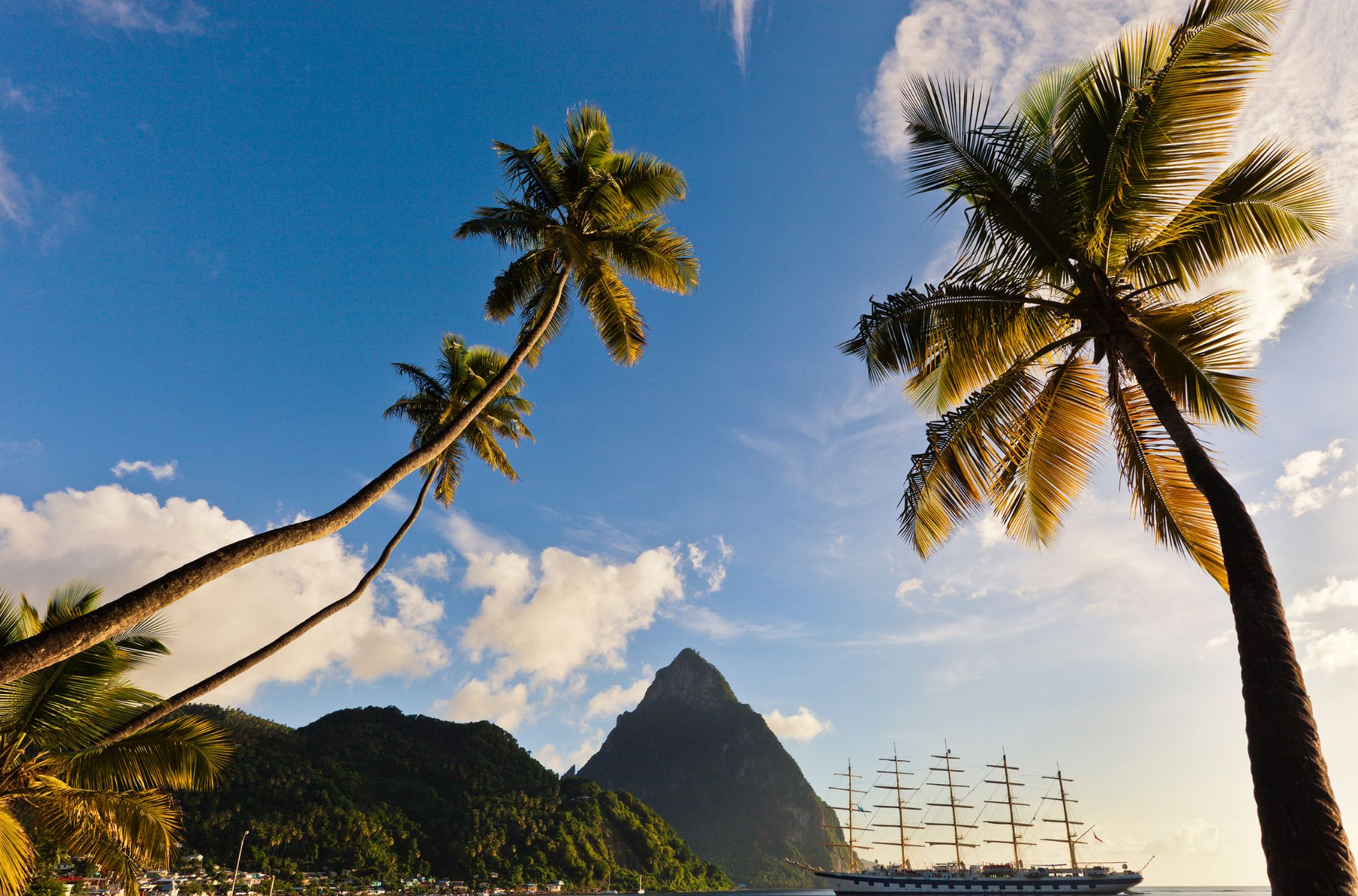Are you thinking about moving to a tropical paradise? Saint Lucia might be the perfect place for you! Life in Saint Lucia means crystal-clear waters, stunning landscapes, and vibrant culture. But what’s the cost of living like in Saint Lucia?
This guide gives you a detailed look at the cost of living in Saint Lucia, covering everything from dining and transportation to healthcare and real estate.
So, before you take the plunge, get a clear picture of your budget and what living in Saint Lucia really costs.
The Cost of Living in Saint Lucia
As an expat in Saint Lucia, you’ll find that the cost of living can vary quite a bit. This largely depends on your lifestyle and preferences for living expenses. The prices of dining, transportation, and groceries can change based on whether you opt for local or imported goods and the type and location of dining establishments you frequent.
Eating and Dining Out in Saint Lucia
Dining out in St Lucia can be either affordable or quite pricey, depending on the restaurant. If you plan to eat at an inexpensive restaurant or street food vendor, meals only cost around USD 5-8 per person, making them a cheap and budget-friendly food choice.
However, a mid-range restaurant can cost USD 13-45 per person. This price can go up with the addition of starters, desserts, and drinks. If you plan to splurge on a fine dining restaurant experience, you should budget between USD 150 and 200 per person daily.
For instance, a 3-course meal at Jacques Waterfront Dining can set you back USD 106. A main course at Big Chef Steak House can range from USD 28-37. It’s worth noting that dining costs can vary across different towns. Rodney Bay, for example, is notably cheaper than Castries and more expensive than Soufriere.

Saint Lucia Transport Costs
In Saint Lucia, transportation is mainly provided by minibusses, which are the primary mode of transport for local residents. The fares for these minibusses can range from USD 2.50-8.00, depending on the route and time of day.
Taxis are also readily available, and private taxis can be identified by their light blue number plates with a TX prefix. The fares for taxis can vary based on several factors, including the destination, number of passengers, amount of luggage, and the taxi company.
If you’d rather drive, cars and scooters can also be rented. However, a temporary driving license is required for visitors. If you’re looking to explore beyond Saint Lucia, ferries link the island to Dominica, Martinique, and Guadeloupe. Plus, helicopter transfers are available between Hewanorra and George FL Charles airports, which can significantly cut down travel time between cities in the south and north of the island.
Cost of Groceries in Saint Lucia
Grocery shopping in Saint Lucia can be quite affordable, especially if you go for locally produced goods. However, imported goods tend to be pricier. So, it’s worth keeping this price in mind when planning your grocery shopping.
On average:
- a 1L bottle of milk costs USD 2.50
- a loaf of fresh white bread is priced at USD 0.80
- box of 12 eggs is USD 2.80
- 1kg of cheese is USD 11
- 1kg of chicken breast is USD 8.50
- 1kg of apples is USD 7.80
- 1kg of potatoes is USD 5.20
- 1kg of rice is USD 2
Health Care in Saint Lucia
For those contemplating a move to Saint Lucia, understanding the healthcare system is essential. The government is actively investing in the health sector to enhance the quality of life for its residents. This includes establishing new healthcare centers, equipping hospitals with modern tools and amenities, and strengthening the healthcare infrastructure.
The healthcare system in St Lucia is managed by the Ministry of Health and Wellness. It’s a comprehensive system that includes thirty-three health centers, three public hospitals, one private hospital, and one psychiatric hospital. The public healthcare scheme is widespread, covering most localities in the country.
However, as an expat, securing private medical insurance is advisable. For instance, Saint Jude Hospital now serves as a city center and a respiratory hospital due to Covid-19. Tapion Hospital, a commercial hospital, houses the only CT Scanner on the island. The National Mental Wellness Centre, commissioned in 2010, is a psychiatric facility.
Despite its small size, Saint Lucia provides fairly good healthcare. The government is working hard to make healthcare more accessible and affordable through a National Health Insurance scheme. However, healthcare isn’t entirely free, and the scheme doesn’t cover everyone. In 2014, total health expenditure was 6.72% of the GDP, with about 66.5% of total health spending coming from government expenditure.
The government’s commitment to improving healthcare is clear in the donation from the Ministry of Health, Wellness, and Elderly Affairs to Saint Jude Hospital. This donation improved diagnostic testing in Vieux Fort, Saint Lucia, with the addition of a hematology analyzer and immunoassay analyzer. However, it’s important to note that specialized care and access to advanced medical technologies may be limited. Patients with complex conditions may need to be referred abroad for certain treatments.
In a significant move towards strengthening the country’s health system, the World Bank granted a USD 20 million credit from the International Development Association in September 2018. The goal of this grant is to achieve Universal Health Coverage in Saint Lucia.
As an expat, it’s crucial to secure a health insurance policy that provides enough coverage for the duration of your stay. It’s also important to keep up with routine vaccinations. These include measles, chickenpox, diphtheria-tetanus-pertussis, flu, MMR, polio, hepatitis A and B, typhoid, rabies, and yellow fever.
While the public healthcare system can sometimes be slow and inefficient, many travelers and expats prefer private healthcare facilities. Despite this, Saint Lucia offers an excellent quality of life with an affordable and low cost of living. The island is strategically located and well-connected to the world, surrounded by the Caribbean Sea and the Atlantic Ocean.

Study Costs in Saint Lucia
Saint Lucia is home to 4 universities, offering a total of 30 study programs. These include 24 Bachelor programs, 3 Master programs, and 3 PhD programs. The University of the West Indies Distance Education Centre is one of these institutions. The island also boasts several medical schools, making it an attractive destination for those pursuing a career in healthcare.
Tuition fees in Saint Lucia can vary significantly depending on the university and the field of study. On average, tuition fees range between USD 4,000-10,000 per semester. However, this is just for tuition, so additional costs for housing and insurance should also be considered.
To provide a clearer picture, let’s consider some specific universities. The Spartan Health Sciences University, a private medical school in Vieux Fort, charges an average annual tuition fee of around USD 12,500. The tuition for the Basic Sciences per semester at this university is USD 6,250, while Clinical Rotations per semester will cost you USD 10,500.
In Vieux Fort, there’s also the International American University, which charges an annual tuition fee of about USD 12,000. If you’re looking for a more budget-friendly option, the Sir Arthur Lewis Community College in Castries charges around USD 1,300 per year.
The American International Medical University (AIMU) College of Medicine and Nursing in Gros Islet is another option for those interested in healthcare. At AIMU, the tuition for Basic Sciences per semester is USD 4,650, and for Clinical Rotations per semester, it’s USD 8,500. The annual tuition fee at this institution is about USD 6,000.
While St Lucia provides free and compulsory education for children up to the age of 15, costs for higher education can vary significantly. Therefore, thorough research and planning ahead will help you manage the costs of studying in Saint Lucia comfortably.
Real Estate in Saint Lucia
Saint Lucia’s real estate market is diverse, offering a range of properties from family homes to luxury villas and modern condos.
Renting in Saint Lucia
Rental prices in Saint Lucia are dependent on the type of property and its location. In Castries, the capital city, a one-bedroom apartment in the city center can cost around USD 480 per month, while a three-bedroom apartment can go for USD 1,000 per month. Outside the city center, a one-bedroom apartment can be found for around USD 250 monthly, and a three-bedroom apartment for approximately USD 480 per month. However, the supply of long-term private rental properties can be limited due to the preference of landlords for short-term vacation rentals.
Buying property in Saint Lucia
Property prices in Saint Lucia start from USD 200,000 for a local home. Modern condos and bungalows are around USD 300,000, and beachfront villas can cost about USD 1,000,000. The best places to buy or rent property are located in the northwest part of the island, including Rodney Bay, Marigot Bay, and Castries. Most new developments are in the island’s north, but the south is also expecting major developments.
Foreigners interested in buying property in Saint Lucia need to apply for the Alien Landholding License and are required to pay fees based on the property value.
Citizen by Investment Program
If you’re considering a long-term stay or even citizenship, Saint Lucia offers a Citizenship by Investment program. This program requires a minimum investment in the country (which can be in real estate). With a Saint Lucia passport, which ranks highly on the Global Passport Index, you can travel visa-free to more than 140 countries. These include popular destinations like the United Kingdom, the Schengen area, Hong Kong, and Singapore.
After lawfully residing in Saint Lucia for 5 years, you can apply for permanent residency. After 7 years, you can apply for citizenship by naturalization. Living in Saint Lucia offers a unique blend of beauty, affordability, and a friendly expat community.

Adjusting to the Cost of Living in Saint Lucia as an Expat
Relocating to Saint Lucia offers an exciting experience, with the island’s vibrant charm and growing expat community making it a popular destination for people from all over the world. The main economic activities on the island are tourism and offshore banking. English is the official language, but French Creole is also widely spoken by the locals.
While the cost of living is generally affordable, especially when compared to many other places, including the US and UK, imported products like electricity, milk, meat, and gasoline can be pricier than in the US.
Saint Lucia’s real estate market is thriving due to the influx of expats. Properties such as villas, resorts, apartments, condos, and historical colonial homes are available at various price points. Locally built homes start from USD 200,000, while modern condos and bungalows are priced around USD 300,000. Beachfront villas can go for prices as high as USD 1,000,000.
Living in St Lucia also comes with the advantage of a favorable tax regime. There are no capital gains, inheritance tax, or wealth tax on worldwide income or assets. This makes it particularly attractive if you’re American thinking about relocating to the island.
Private taxi services tend to be more expensive than in cities in the US, although distances on the island are relatively short.
Medical facilities in Saint Lucia are adequate. However, as an expat, it’s strongly advised that you invest in a comprehensive health insurance policy that covers treatment abroad. In serious situations, patients may be transported to neighboring Barbados for treatment. Private hospitals are generally preferred by expats over public ones.
Education in Saint Lucia is decent, with a selection of public, private, and Catholic educational institutions. There are also a few international schools to choose from. The cost of studying in Saint Lucia varies depending on the school, with students expected to spend around USD 4,000-10,000 per semester.
Saint Lucia offers a high quality of life, with plenty of activities to keep you occupied. Popular activities include sailing, water sports, hiking, and mountain biking. There are also many annual festivals and street carnivals that provide opportunities to experience the vibrant Saint Lucian culture and mingle with locals.
Wrapping Up Life Costs in Saint Lucia
Living in Saint Lucia presents a unique blend of affordability, Caribbean charm, entertainment, and a thriving expat community. Despite some items being pricier, the general cost of living remains appealing, especially when compared to US or UK standards.
With a growing real estate market, efficient healthcare, and diverse educational opportunities, the island caters well to different lifestyle preferences. It’s clear that careful planning and strategic choices can truly make Saint Lucia a cost-effective haven for expats.
And remember, whether you’re drawn to the island of Saint Lucia for its rich culture, serene beaches, or investment potential, securing adequate insurance and understanding local customs will make your transition to Saint Lucia much smoother. So what are you waiting for? Now is the time for you to embrace the Saint Lucian way of life and enjoy the beauty of this vibrant Caribbean island!
Contact us at Next Generation Equity for help gaining your Saint Lucia citizenship.





